SUMMARY
This is AI generated summarization, which may have errors. For context, always refer to the full article.
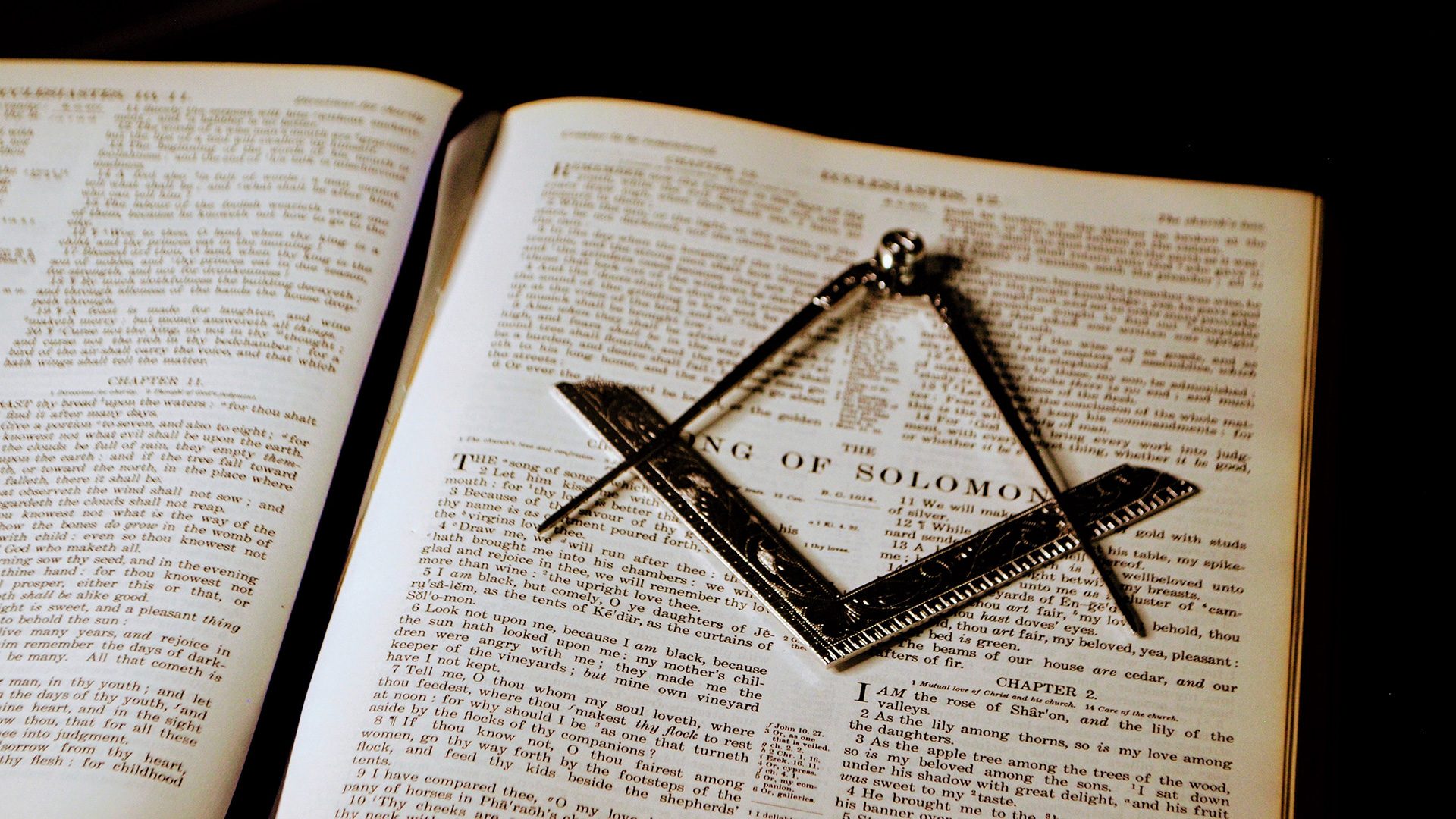
MANILA, Philippines – It was 1883 in Madrid. A 22-year-old man from Calamba, Laguna, pledged allegiance to a brotherhood that the Catholic Church, more than a century earlier, had condemned as a “depraved and perverted” secret society.
The punishment for joining the Freemasons, according to Pope Clement XII’s 1738 papal bull In eminenti apostolatus specula, was excommunication – which meant one was banished from the Catholic Church and condemned to hellfire after death.
This did not stop the young Filipino – Jose Rizal – from joining Logia Acacia No. 9 of the Gran Oriente de España in Madrid, where he was studying medicine. Rizal, who went by the Masonic name Dimasalang, was said to have joined other Masonic lodges in France and Germany. Masonic historian Reynold Fajardo called Rizal “an international Mason.”
In the years that followed, Rizal completed two novels that inspired Filipinos to revolt against their Spanish colonizers, and on December 30, 1896, was executed by firing squad in Manila for rebelling against Spain. It was also Spain that brought and imposed Catholicism as a state religion in the Philippines – where it remains the faith of the majority.
Now revered as a national hero, Rizal was said to have rejected Masonry on the eve of his death, but his retraction letter remains controversial. “I declare myself a Catholic and in this religion in which I was born and educated I wish to live and die,” the letter states. “I abominate Masonry, as the enemy which is of the Church, and as a Society prohibited by the Church.”
Why is Masonry condemned by the Catholic Church? How does the Catholic Church, nearly three centuries after Clement XII’s In eminenti, regard the Masons? What about the Masons in the Philippines, including prominent figures such as former president Manuel Luis Quezon and former chief justices Jose Abad Santos and Reynato Puno?
Masons: ‘Not a secret society’
Freemasonry made headlines again after the Vatican, in response to Dumaguete Bishop Julito Cortes, said the Catholic Church still bans its members from joining this brotherhood. The Vatican’s Dicastery for the Doctrine of the Faith issued this reminder on Wednesday, November 15, citing the “irreconcilability between Catholic doctrine and Freemasonry.”
According to the United Grand Lodge of England, modern Freemasonry “is one of the oldest social and charitable organizations in the world,” rooted in the traditions of medieval stonemasons. The first Grand Lodge, or association of Masonic lodges, was established in England in 1717.
The group estimates global Freemasonry membership at around six million.
In the Philippines, there exists “The Most Worshipful Grand Lodge of Free and Accepted Masons of the Philippines (FAMP).”
There are around 21,000 active Freemasons in the Philippines, according to FAMP.
The organization says on its website: “Masonry is not a religion nor a secret society. It teaches man to practice charity and benevolence, to protect chastity, to respect the ties of blood and friendship, to adopt the principles and revere the ordinances of religion, to assist the feeble, guide the blind, raise up the downtrodden, shelter the orphan, guard the altar, support the government, inculcate morality, promote learning, love man, fear God, implore his mercy, and hope for happiness.”
Freemasonry under church law
Despite the claim of Masons that there is nothing to fear, the Catholic Church has stood firm against their brotherhood throughout the centuries.
After Clement XII, at least eight other popes – from Benedict XIV (in Providas Romanorum, 1751) to Leo XIII (in Annum ingressi, 1902), and now even Francis – have repeated the Catholic Church’s ban on joining Freemasonry.
The 1917 Code of Canon Law, a set of rules governing the Catholic Church, said in Canon 2335 that Masons are automatically excommunicated. The 1983 Code of Canon Law does not explicitly condemn Freemasonry, but warns in Canon 1374 that punishment awaits “a person who joins an association which plots against the Church.”
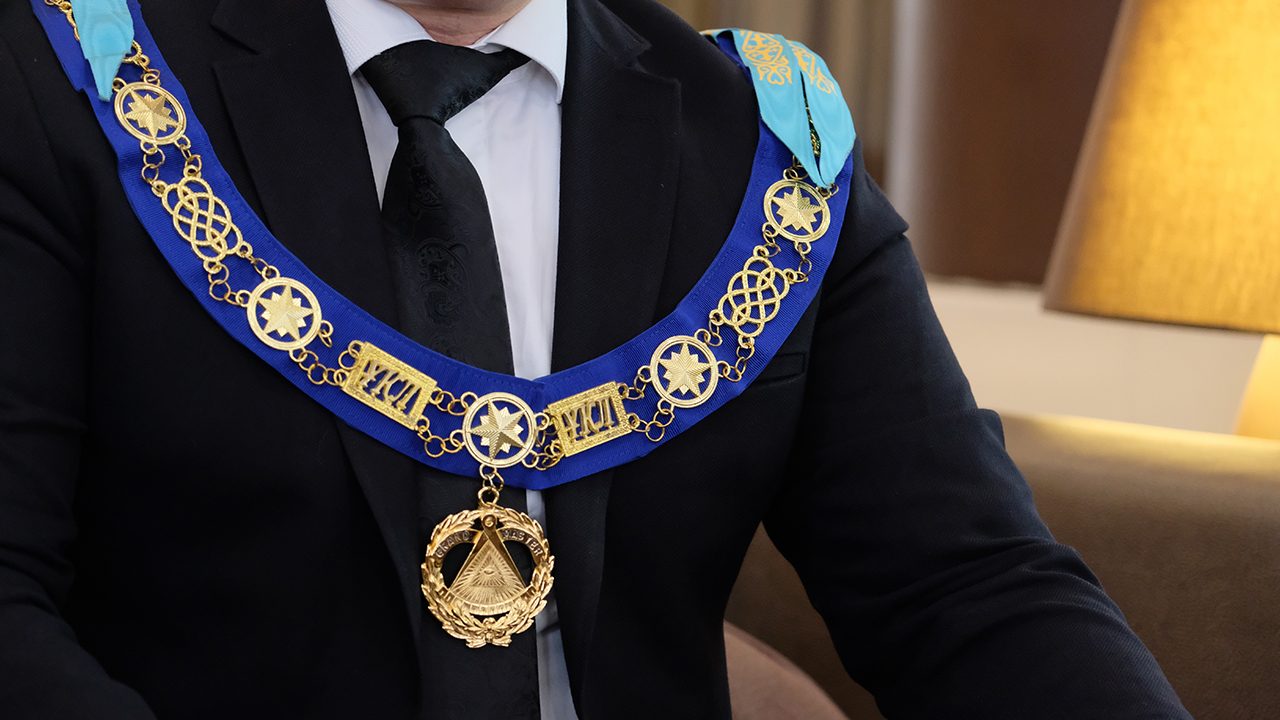
After the 1983 Code of Canon Law was published, the Vatican clarified that “the Church’s negative judgment in regard to Masonic association remains unchanged since their principles have always been considered irreconcilable with the doctrine of the Church and therefore membership in them remains forbidden.”
“The faithful who enroll in Masonic associations are in a state of grave sin and may not receive Holy Communion,” said a November 1983 declaration signed by Cardinal Joseph Ratzinger (elected two decades later as Pope Benedict XVI), then prefect of the Vatican’s doctrinal office, the Congregation for the Doctrine of the Faith. The declaration was approved by Pope John Paul II.
The Catholic Bishops’ Conference of the Philippines (CBCP), in a 2002 declaration, enumerated the following punishments for Masons who actively engage in Masonic activities and refuse to renounce their membership despite one warning:
- prohibition from receiving holy communion and other sacraments
- prohibition from standing as baptism or confirmation sponsor
- ban from admission into parish or diocesan structures
- denial of funeral rites, unless they repented before death
- in cases where a Catholic funeral is allowed by the bishop, prohibition of Masonic services in the church or cemetery preceding or succeeding the church rites
The CBCP also said “any Catholic who is a convinced member of Freemasonry, notoriously adhering to the Masonic vision” is automatically excommunicated.
What’s with Freemasonry that draws such condemnation from the Catholic Church.
Libmanan Bishop Jose Rojas, chairman of the CBCP Episcopal Commission on Doctrine of the Faith, explained a number of reasons in a set of pastoral guidelines that were updated September 12 this year:
On religion, faith, and God
While Masons are required to believe in God, a member “is never required to say what god he believes in.” In Freemasonry, “any god will do.” Rojas said this “reflects Masonry’s religious indifferentism, a tendency to regard all religions as of equal worth.” According to the bishop, this is unacceptable because this means “there is no one true Church.”
On morality, relativism, and subjectivism
This “indifferentism” means that Masonry “actually promotes relativism, that is, as there is no one true religion, no one can also claim to possess any truth in an absolute way,” Rojas said. In other words, “man is the last arbiter of what is right and wrong.”
On deism and naturalism
While Masonry “may believe in the existence of a supreme being,” this being “does not intervene in the universe.” According to Rojas, this means one “cannot speak of divine providence or revelation,” which means that “man is not accountable to God for in fact he is the master of the world.” Masonry “also tends towards naturalism, which holds that there can be no supernatural or spiritual explanations for reality since everything arises from natural properties and causes.”
On Jesus Christ
Jesus’ name is rarely mentioned in Masonic writings, and if ever Jesus is cited, it is to honor him as one honors “great thinkers and moral leaders.” Masons “cannot accept that Jesus is God,” said Rojas.
Masonic rites
According to Rojas, Masonic rituals contain “heretical” and sometimes “explicitly anti-Catholic” materials. They also “involve blasphemous solemn oaths since these are taken with the Bible without any important motive.”
The view from the Philippines
While these doctrinal issues remain, Filipino bishops have repeatedly petitioned the Vatican to loosen restrictions on members of FAMP.
In the Philippine context, Rojas noted, “some, if not many, Catholics who join Masonic associations remain active in the life of the parish and that of the Church.” Many of them join church activities or donate money for church projects.
“More importantly, these Catholics join Masonic associations with no idea about issues on Masonic philosophy and doctrine. Many of these Catholics view such associations simply as social clubs or as fraternities, more concerned only about the spirit of brotherhood that they seek in social life,” said Rojas.
Such Catholics in Freemasonry, when asked, “could not even adequately explain nor understand what Masonic principles are and what they in practice entail.”
In 1968, Filipino Masons told bishops in a dialogue “that they did not really hold communion with their masonic counterparts elsewhere in the world who were manifestly anti-Catholic, stressing further that there was nothing essentially anti-Catholic in their constitution and that they were in fact fully committed to cooperate with the Catholic Church,” according to Rojas.
Catholic experts, he added, “arrived at the conclusion that Masonic lodges in the Philippines had been established more for fraternal and social purposes, and that masons in fact in the country wanted a new era of mutual cooperation with the Church.”
In 2013, the CBCP – through its president, Lingayen-Dagupan Archbishop Socrates Villegas – requested the Vatican to exempt FAMP members from Canon 1374.
The Vatican stood its ground: no to Masons. – Rappler.com
Add a comment
How does this make you feel?
![[The Wide Shot] Peace be with China](https://www.rappler.com/tachyon/2024/07/wideshot-wps-catholic-church.jpg?resize=257%2C257&crop=311px%2C0px%2C720px%2C720px)
![[OPINION] A critique of the CBCP pastoral statement on divorce](https://www.rappler.com/tachyon/2024/07/TL-cbcp-divorce-statement-july-19-2024.jpg?resize=257%2C257&crop=285px%2C0px%2C722px%2C720px)


![[The Wide Shot] Was CBCP ‘weak’ in its statement on the divorce bill?](https://www.rappler.com/tachyon/2024/07/cbcp-divorce-weak-statement.jpg?resize=257%2C257&crop=258px%2C0px%2C719px%2C720px)

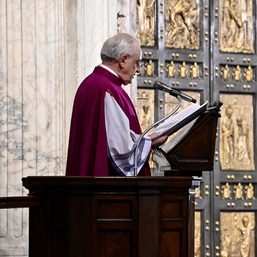
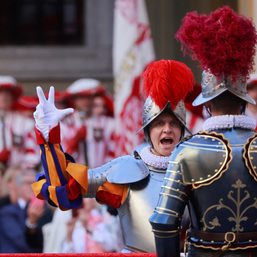
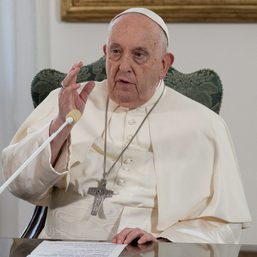
There are no comments yet. Add your comment to start the conversation.